
Revive the Roots is a non-profit organization located in Smithfield that teaches and practices permaculture, an agricultural philosophy that recognizes the inextricable relationship between people and nature and works within an ecosystem’s natural patterns. The non-profit provides space to visitors at Mowry Commons, land leased from the estate of Mary Mallory through the town of Smithfield. On the grounds are community gardens, walking trails along the Woonasquatucket River and an edible forest garden. Adjacent to the land is a 300-year-old farmhouse that’s slowly being brought back to life. This is where Bradford Adelard and Hannah Purcell Martin live with What Cheer Flower Farm professional flower growers Nick and Crystal.
After two years of successfully working the 18 acres that comprise Mowry Commons, Revive the Roots approached the town of Smithfield and asked them to let the organization use the house as a base of operation. In return, the nonprofit agreed to restore the farmhouse under the historical curatorship of Preserve Rhode Island. Revive the Roots covers the cost of materials and provides the physical labor. “Our work kind of pays forward rent,” Adelard explains. “The last project we did was a porch restoration that paid our rent through February 2023.”
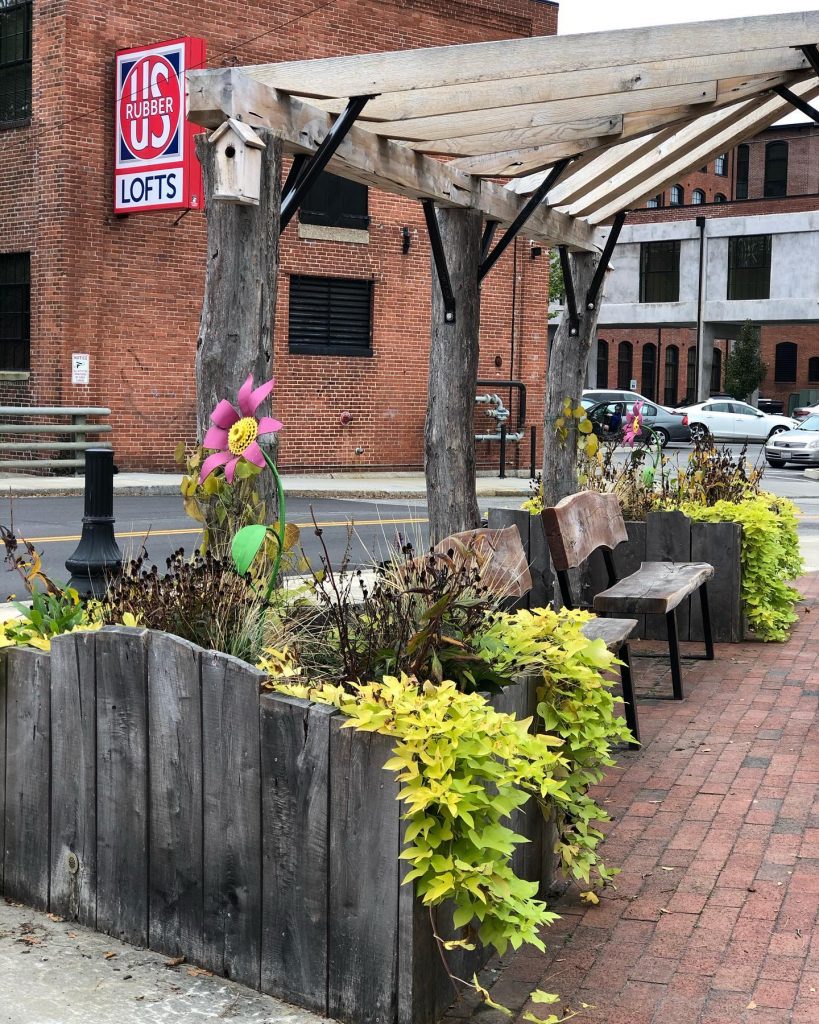
Adelard is a woodworker who, after purchasing a sawmill with his friend Zach, began doing work with the Woonasquatucket Watershed Council. “The parks department cuts down a lot of trees, and then they just sit there,” Adelard says. “So we turn those trees into lumber that we use for park installations around the city.” The largest project he did was at Black Locust Pocket Park near The Steelyard. “We put in two arbors, four benches, a big deck and rainbox planters that have a hidden reservoir. The goal is to use local resources to improve public space and build community.”
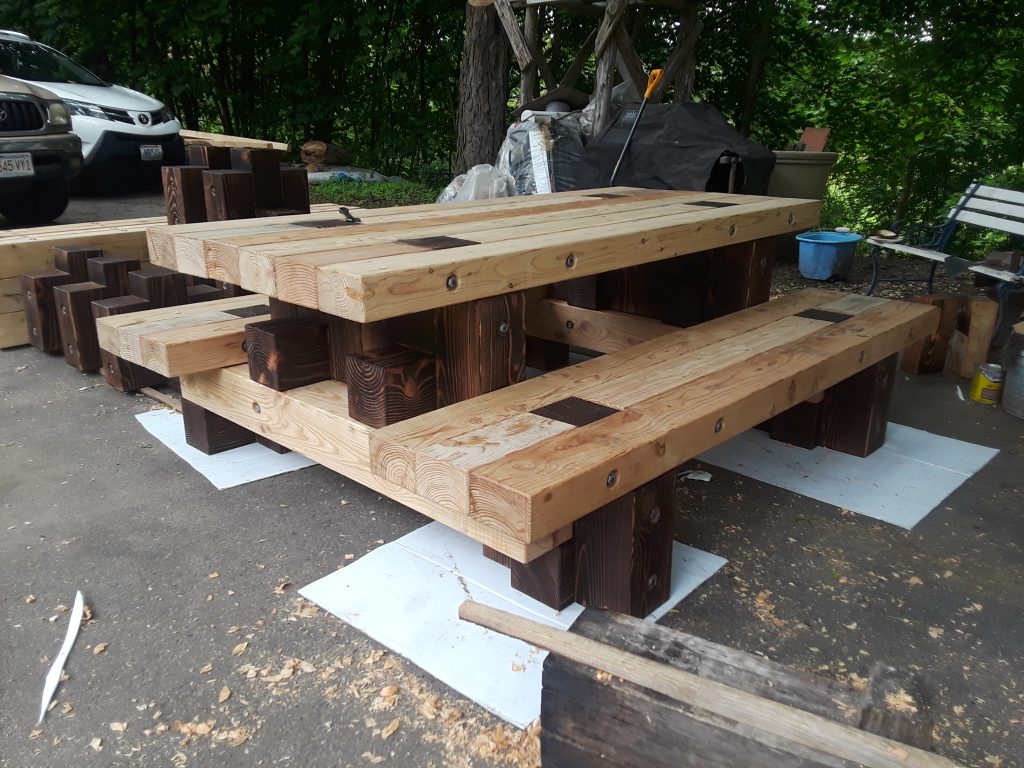
Woodworking isn’t the only type of art Adelard enjoys. He also does leatherworking and blacksmithing. “I’ve been doing a lot of fabricating for the farm,” he says.
The farm also serves to inspire Martin’s art. Although Martin dabbles in different mediums — she recently discovered a love of glassblowing — she’s primarily a painter. “I spend a lot of my time on a 25-acre preserved piece of land, so that really influences a lot of my work,” she says. “Even something as small as the act of pulling weeds is an interesting experience of uprooting things and examining the root structure or the destruction of something nature creates. It’s caused me to learn so much more about plants and flowers.” She spends a lot of time studying what she cultivates. “No two flowers are the same,” she continues. “You might think one daisy looks like another daisy, but it doesn’t. It’s pretty mind blowing.”
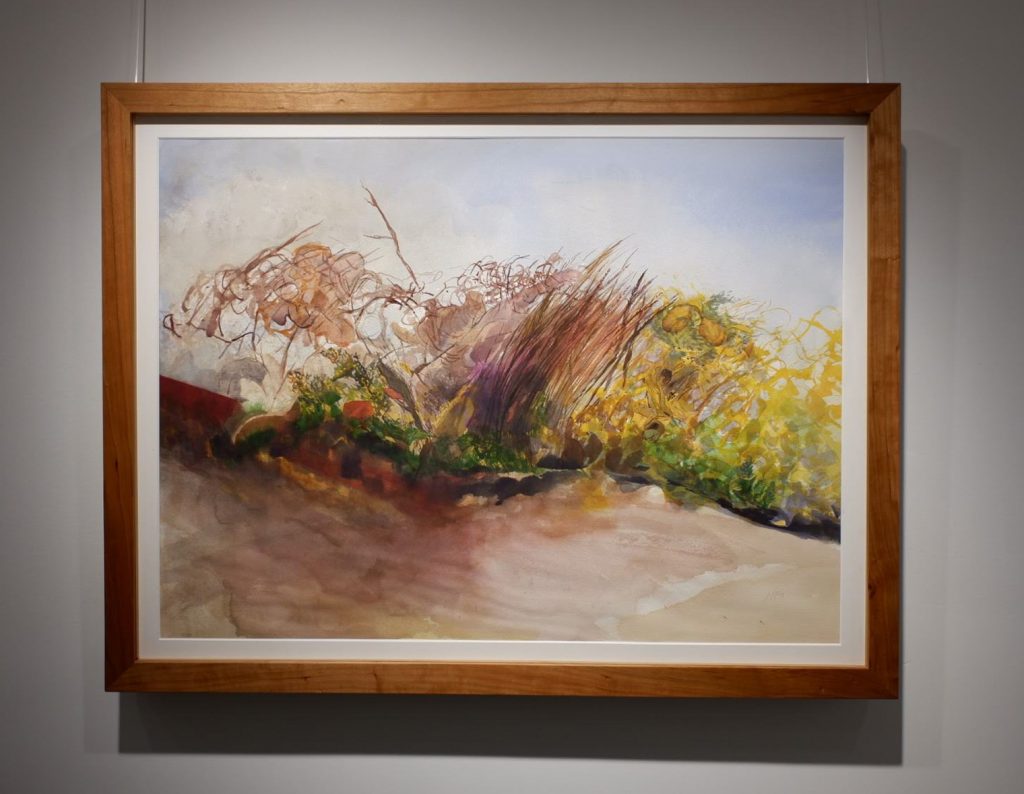
Martin’s parents raised her and her sister with the understanding that much like the daisies, no two children are exactly alike, so they chose to homeschool their daughters. “My parents wanted us to do things that a typical school schedule really limits,” Martin explains. “Having time to myself and being self directed and self motivated allowed me to early on develop an understanding that self direction comes from a base of your own interest and passion. A lot of my friends were homeschooled as well, and I think each one of them has really succeeded in figuring out the profession-as-personality thing. When you get a little more freedom to explore, it leads to figuring some things out about yourself sooner rather than later.”
Martin’s personality led her into the profession of gallery management. “One of [Revive the Roots’] board members is a horticultural genius. He opened a store in Providence called Home Grown. Its outdoor nursery space has rare perennials with a focus on some native plants. The inside will have garden gear and home goods that are nature-focused and local.” Upstairs is a substantial gallery space that Martin will manage and a studio space that she hopes will allow her more time to paint.
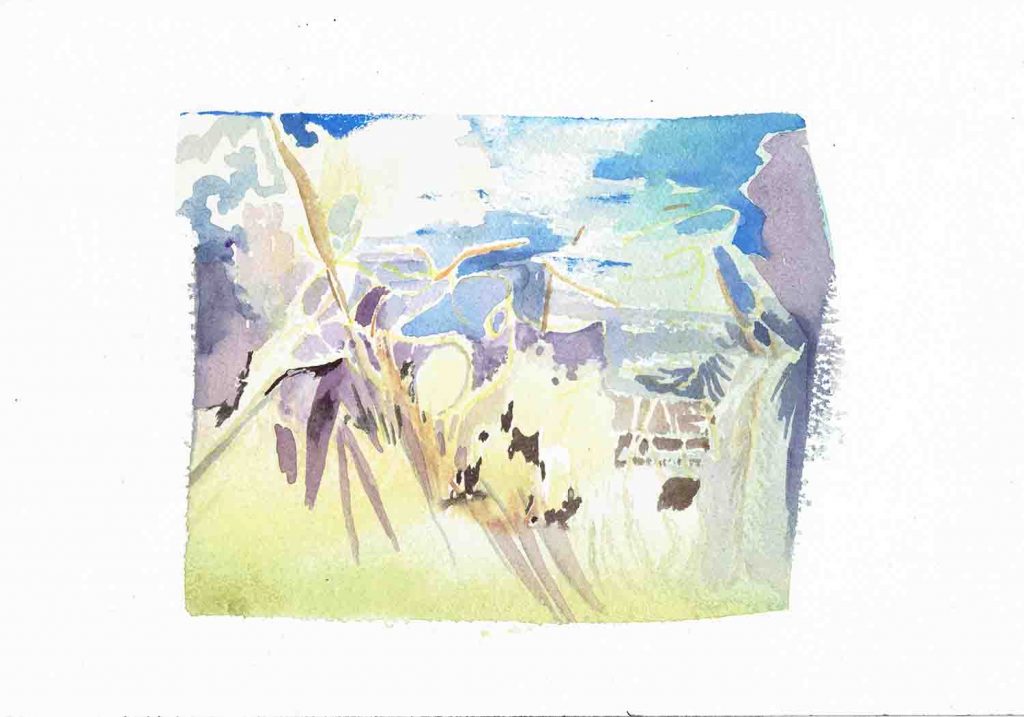
Adelard and Martin both maintain studio space in The Reliquarium, a work/live artist collective in Lincoln whose members often do projects together; their current project is building TimeZone, a puzzle game that requires players to navigate a series of challenges, each set in a different period of time. It will be unveiled at R1 Indoor Karting in Lincoln. Martin enjoys the collaborative and supportive nature of working with the other Reliquarium members. “You need a funny skill set to work with the group,” says Martin. “You have to know how to use a drill and be on a ladder, but having an artist’s eye helps.”
Adelard also enjoys the freedom that comes from collaboration. “We always have a project lead,” he says, “but there’s a lot of freedom to go forward and make the project your own.”
Revive the Roots continues to grow and is taking steps to purchase the farmhouse that Adelard and Martin call home. “It’s a sweet spot and it takes at least a few individuals to keep navigating obstacles and pushing the project forward. I feel personally responsible for that,” says Adelard.
Martin enjoys the continual access to the outdoors — and artistic inspiration — the farm gives her, no matter how busy life gets. “I get outside a few times every month to do a little painting from life, even if it’s a quick little watercolor or a sketch in my sketchbook. It’s a reminder that you have to take time for those things that are important.”
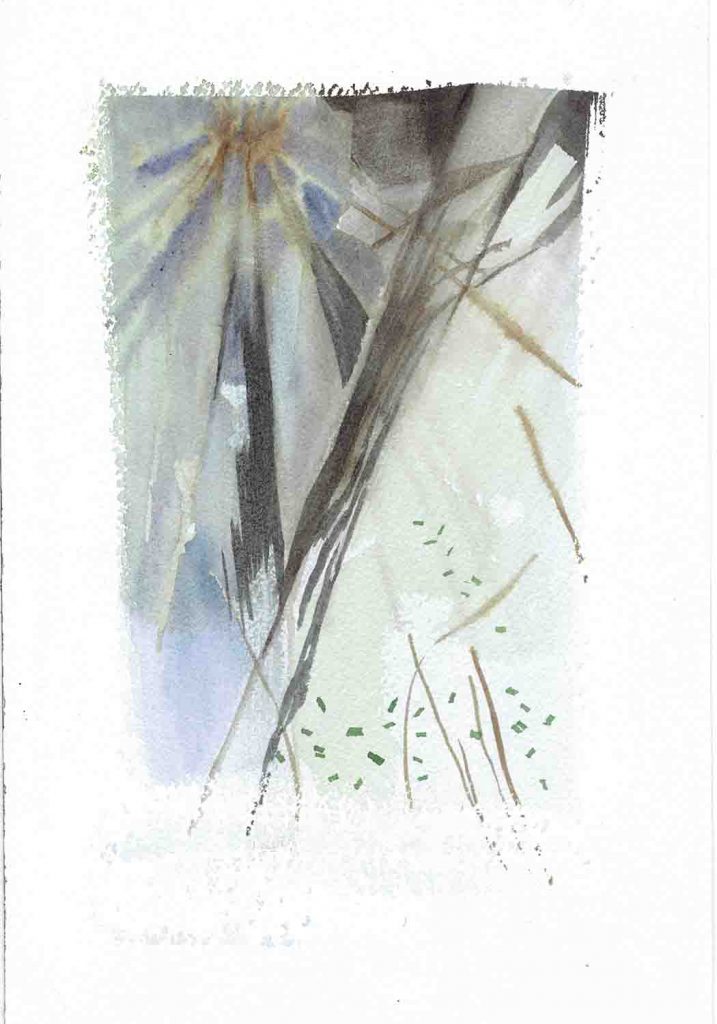
For information on Revive the Roots, go to revivetheroots.org. For more information on Hannah Purcell Martin’s work, follow her @hannahpurcellmartin or hannahpurcellm.com. See Bradford Adelard’s work @brad_oza